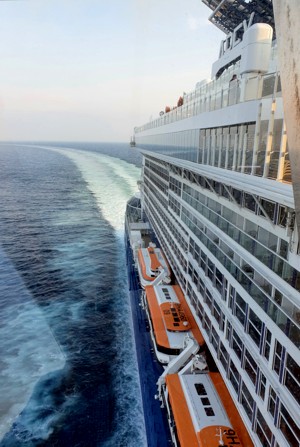
The House of the Blackheads
According to Wikipedia:
"Riga began to develop as a centre of Viking trade during the early Middle Ages" and soon became an important Baltic centre of trade and a founding member of the 'Hanseatic League'", an association of powerful traders who, in time, came to dominate the Baltic trade and thus trading cities as far away as Holland.
They even raised their own armies, like the British East India Company. The building that dominates the town square is The House of the Blackheads, a guild for unmarried merchants, shipowners, and foreigners in Riga.
Yet it is essentially a replica. The original was bombed by the Germans in 1941, when Hitler turned on his erstwhile ally, Stalin, in Operation Barbarossa. The Russian occupiers then levelled it. After independence, the Latvians completely rebuilt it in 1999, as proclaimed on the façade, and it's now a museum (with replica contents where the originals were lost).

Riga struck us as another very liveable city.

It is not without some modern aspects.

As is the case in many communities, ethnic identity is defined (encompassed?) by language, shared values and, to a lesser extent, religion.
In most Baltic states the religion, since the Reformation, has been predominantly Lutheran Christianity with Roman Catholic and Orthodox Christianity in the minority.

Until the 1935 census Judaism was also among the minority groups but they did not fare well in the following decade.
Latterly some Muslim refugees have arrived in most Baltic States. In 2018 the Office of International Religious Freedom (of US Department of State) estimated that religion in Latvia was split as follows: Lutheran (36%); Roman Catholic (17%); Eastern Orthodox (9%); Other Christians (2%); Other Religions (1%). Those declaring 'no religion' made up the balance (35%). So, Latvia is more religious than Estonia; and Sweden; and Denmark but still a long way short of the United States.

